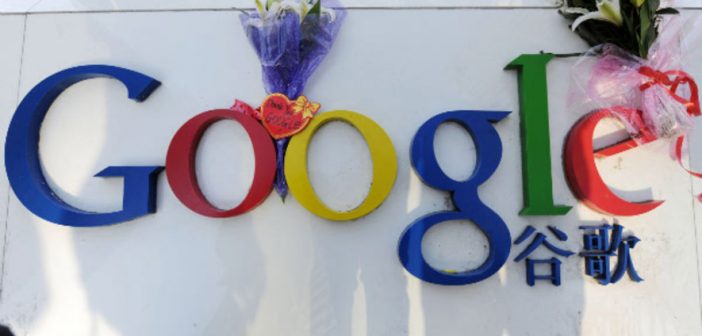Beijingkids has been an essential family resource for Beijing international families since 2006. And just as kids grow up in the blink of an eye, Beijing has grown and changed almost beyond recognition in that time. In Throwback Thursday we jump in the time machine, traveling through our 14 year-strong blog archives to dig out the most entertaining, fascinating, and thought-provoking stories for your reading pleasure. Ready? Let’s go…
It seems incredible to think of it now, but indeed, there was once a time that you could peruse Google, Facebook, YouTube, and many other sites to your heart’s content right here in China.
This week’s throwback article dates from Mar 24, 2010, just after Google “switched off its Mainland site”. After months of discontent, Google decided they would rather withdraw from the market entirely than comply with local censorship regulations. Bye-bye, China!
Google wasn’t the first media giant to go behind the Great Firewall, however, it is one of the few that chose to do so, unlike Facebook and Twitter, which were both actively blocked in July, 2009. In a few short months, the local internet landscape changed dramatically. Not only was it impossible to search on the world’s most powerful search engine, but staying in contact with family and friends abroad suddenly became a lot harder.
Greg Monk remembers the switch-off well. A student at the time, he was planning to meet up with a friend in another province, and they were using Facebook as a primary way to communicate. “Suddenly I couldn’t get in touch with her at all. I was concerned that we wouldn’t be able to meet. Thankfully she remembered which hostel I was going to be staying at and the dates I’d be there so we were still able to meet up.”
In the next couple of years, other popular apps like Instagram and WhatsApp were acquired by Facebook and subsequently blocked as well. Anna Lin Yip, Marketing Director of Mosto Group says that as a result, she is “definitely much less communicative with family and friends” than she would have been otherwise, but that the biggest impact has actually been on businesses: “we used Instagram before it was blocked, it’s a more two-way interactive platform than WeChat and a more accessible platform for the users.” According to Yip, Wechat is “less transparent, more costly, and you have to think of marketing differently.”
Indeed, in the years the departure of Facebook, WeChat has sprung up as an alternative social media, but it is increasingly hard for people outside China to access the mega-app, meaning that most foreigners still rely on other means to circumnavigate the Great Firewall.
But it’s not only the foreigners who have been inconvenienced by these bans: there is a strong argument that Chinese businesses have also suffered as a result. As someone who has spent most of her life outside the Great Firewall, I can testify that working in Beijing – without Google Drive, Trello, Asana, Slack, or any of the other collaborative workplace tools that I previously so relied upon – initially felt like going back in time, where people email documents back and forth to one another to edit; share important updates on WeChat, which promptly get lost in the barrage of work and private messages; losing hours and hours of productive time in the process. The worst part? Most of my friends have been here for so long, they don’t even know what they’re missing!
You can read the original article in its entirety here.
Were you here when Google left mainland China? How did it affect your life or business? Tell us in the comments!
KEEP READING: How to Post and Promote Your Event on beijingkids – For Free!
Images: CNMonitor




